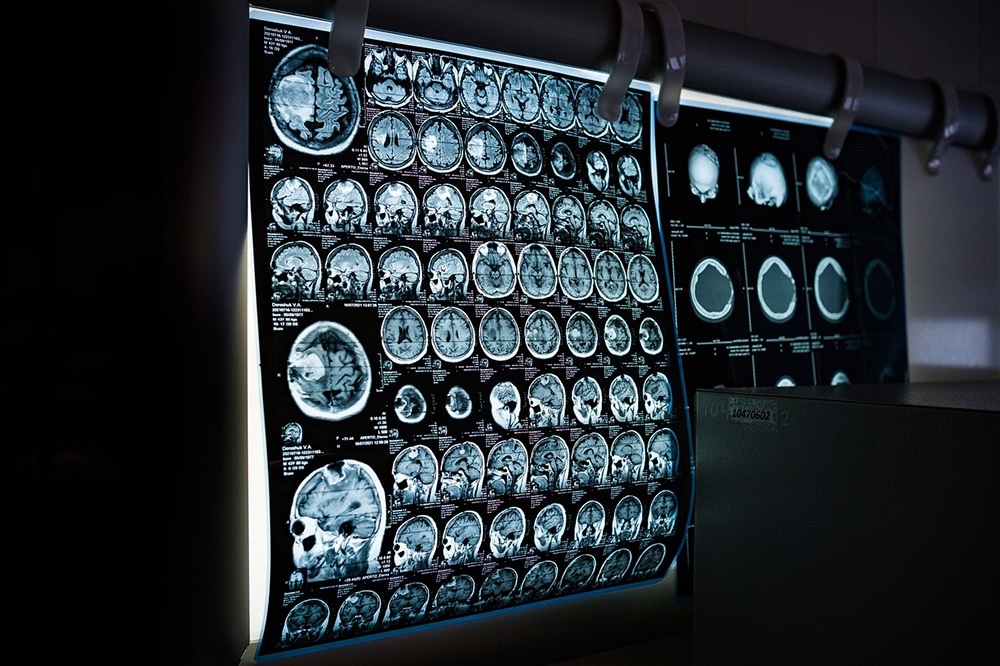How Does a Spinal Cord Injury Affect the Brain?

Injury victims who have been harmed through no fault of their own typically face an uphill battle on their road to recovery. From dealing with medical bills, lost wages, pain and suffering, and emotional anguish, the average injury victim in Mississippi needs a significant helping hand to reach their expected maximum medical improvement.
Maximum medical improvement (MMI) does not necessarily mean that a patient will return to their previous state of health before a serious accident. Many spinal cord injury victims will never reach a point where their condition can be considered comparable to before their injury. A spinal cord injury may affect every facet of a person’s well-being, with one of the biggest concerns often coming down to how a spinal cord injury affects the brain.
Pittman Roberts & Welsh, PLLC offers free consultations to injury victims. If you’ve suffered a spinal cord injury due to another person’s or entity’s negligence, contact our Jackson, MS offices today so we can schedule your complimentary case evaluation.
What Is a Spinal Cord Injury?
A spinal cord injury is classified as any damage that occurs to the tight bundle of nerves at the end of the spinal canal or any damage to the spinal cord itself. This damage may result from an accident such as a car crash or degenerative disease, or illness.
How Do Spinal Cord Injuries Affect the Brain?
The nerves in your spinal cord carry signals to and from the brain. Any damage to the spinal cord puts that communication in jeopardy and may negatively impact a person’s ability to function, think, or move their body. The following details the ways in which a spinal cord injury affects the brain.
Poor Cognitive Function
A spinal cord injury has the potential to impart cognitive problems even among victims who did not suffer a direct blow to the head or whose injury was otherwise below the level of the brain. Documented cognitive problems among spinal cord injury victims include:
- Brain fog
- Memory loss
- Altered thought processes
The above effects can be either short or long term and may negatively impact a person’s quality of life. Doctors should carefully monitor all spinal cord patients for signs of cognitive impairment and adjust treatment plans accordingly.
Chronic Brain Neuroinflammation
Spinal cord injuries have been strongly linked to chronic brain neuroinflammation. Neuroinflammation is the body’s inflammatory response that is found within the spinal cord or brain. Spinal cord victims’ neuroinflammation is associated with a loss of function in the brain’s neurons (neurodegeneration) and cognitive decline.
The following are additional symptoms or side effects of chronic neuroinflammation:
- Depression
- Anxiety
- Anger
- Irritability
- Fatigue
- Memory loss
- Brain fog
- Poor mental focus
- Cognitive decline
Therapeutic treatments for neuroinflammation will vary between patients based on their type of injury, so always report the full extent of your injuries to your doctor. If your injuries were the result of another person’s negligent, reckless, or wrongful actions, you can also speak with an attorney about your legal options for recuperating the cost of your medical care.
Uncontrollable Reflex Movements
When everything in your body functions as it should, the brain sends messages to other parts of the body via the spinal cord. This allows us to walk, reach for items, grasp things in our hands, and otherwise move. When the spinal cord suffers damage, messages from the brain cannot travel effectively. This often results in full or partial paralysis.
In some cases, spinal cord damage may lead to uncontrollable reflex movements, also known as spasticity. Spasticity is the uncontrolled contracting or tightening of muscles. According to current estimates, anywhere from 65% to 78% of spinal cord injury victims have some level of spasticity.
Spasticity often develops gradually in the months following a spinal cord injury. In many cases, the full impact of a severe injury is not clear until weeks, months, or even longer has passed.
Never accept any settlement that seems rushed, or that does not fully encapsulate the scope of your injuries.
Poor Heart Rate and Blood Pressure Control
Our brains play a key role in regulating our heart rate and blood pressure. When signals between the body and brain are impeded, such as in the case of a spinal cord injury, regulation of these two vital functions may be impacted. As a result, many spinal cord injury victims experience slow heart rates and low blood pressure.
Extra caution must be taken when caring for anyone experiencing a slow heart rate or low blood pressure. For example, the sudden raising of a bed from a laying down to an upright position could cause a drop in blood pressure, or orthostatic hypotension.
The effects of orthostatic hypotension can be eased by wearing an abdominal binder and raising or changing positions gradually.
What Causes Spinal Cord Injuries?
Although some spinal cord injuries are the result of chronic or degenerative illnesses, the attorneys at Pittman Roberts & Welsh, PLLC frequently work with clients who have been injured through no fault of their own. Some of the most common causes of spinal cord injuries among our client base include:
- Motor vehicle accidents, including car, truck, motorcycle, bicycle, and pedestrian accidents
- Medical malpractice
- Slip and fall
- Acts of violence
- Recreational sports
You are at an increased risk of suffering a spinal cord injury if you are male, between the ages of 16 and 30, or are over the age of 65. You can decrease your chances of a spinal cord injury by always wearing a seatbelt, wearing a helmet when riding on a motorcycle or bicycle, and never riding with anyone under the influence of alcohol or drugs.
Do not move someone who appears to be suffering from a spinal cord injury unless their life is in immediate and urgent danger. Moving a person with a spinal cord injury may result in permanent and irreversible harm. So long as their life is not in danger, do not move the victim and instead call 911 right away.
150 Years of Combined Experience Representing Injury Victims in Mississippi
We understand how life-altering a spinal cord injury can be. Whether you were injured in an accident or on another person’s property, the attorneys at Pittman Roberts & Welsh, PLLC will do everything in their power to help you achieve full and fair compensation for your injuries if it can be proven that the injury was caused by negligence.
You have only a limited amount of time to take legal action. Contact us today to learn more about your options and your rights under Mississippi state law. Our first meeting is always free, and there is never any pressure to work with our law firm unless you believe that we are the right fit for your case.







